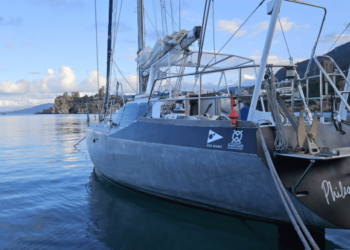Adapting the seafood industry to climate change – The global seafood industry is at a crucial turning point in the face of rapid climate change. A recent report published by Seafish, a collaboration between academia and industry associations, highlights how ongoing and projected environmental transformations could profoundly affect the production and sustainability of seafood products. The paper, updated a decade after the first industry study, provides a detailed overview of emerging risks and potential responses that the industry must adopt to remain competitive and sustainable.
Climate change has direct and indirect effects on fish stocks, including rising ocean temperatures, ocean acidification and changes in precipitation patterns. These factors not only alter the natural habitats of marine species, but also affect their geographical distribution and availability. For the UK market, which is largely dependent on species such as whitefish, pelagic fish and shellfish, these alterations pose a significant challenge. The need for responsible sourcing and climate risk management have become key priorities.
Illegal, unreported and unregulated (IUU) fishing, exacerbated by climate and geopolitical changes, is a further obstacle for the sector. Fluctuations in temperatures and sea levels make it more difficult to monitor fishing activities, facilitating unsustainable practices that threaten marine biodiversity and undermine the economic stability of fisheries-dependent communities.
The report emphasises the importance of adopting effective adaptation strategies to address these challenges. Among the suggested actions are the implementation of advanced environmental monitoring technologies, the adoption of more sustainable fishing practices and increased efforts to protect marine ecosystems. Furthermore, the paper highlights how the resilience of the supply chain has been tested by the COVID-19 pandemic, providing valuable lessons on how to prepare for future climate impacts.
The ultimate goal of the research is to provide the fishing industry with the necessary tools to address and mitigate the consequences of climate change, turning these challenges into opportunities to innovate and grow in an increasingly competitive and evolving global context. The industry’s ability to adapt to these new realities will be crucial in ensuring the long-term sustainability and prosperity of seafood products.
Adaptation to climate change is no longer a choice, but a necessity. Decisions made today will shape the future of fishing and aquaculture, affecting not only the economy, but also the health of marine ecosystems and future generations.
Adapting the fishing industry to climate change









